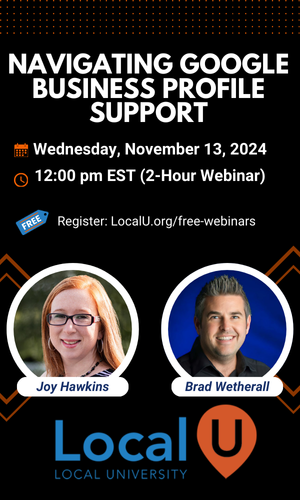- Joined
- Sep 29, 2015
- Messages
- 118
- Reaction score
- 22
My opinion, from the aspect of what users actually use to find/locate local businesses...
First Tier: Google, Apple, Bing, Yahoo and I'd even venture to add in a distant 5th but still top tier is YELP!
There are a Gazillion what I would call "Second Tier" like: Super/Yellow Pages, Merchant Circle, City Search, Local.com you name it.
Now some would argue that being on many of these second tier directories can help your SEO in general. I can't agree with that, nor disagree because (a) I've seen no proof, and (b) it is my personal opinion that the major search engines have evovled to consider these sites insignificant in their algorithm (It's not like the old days when getting on DMOZ was criticial.) So lets disregard the SEO aspect for the purpose of this particular thread, that's not what I'm asking about.
With that being said, I am surprised (or maybe I shouldn't be) that it is very difficult to find any recent, reliable data showing traffic source statistics for local search intent.
It's probably safe to say Google will be top both local and non-local, whether someone is looking for a local plumber or a deal on a vacation cruise. But what about just local intent? What do users use and how much traffic are those sites actually generating. How far behind Google is Bing, Yahoo, and Apple on being the source for local search intent? Is it the same breakdown as ANY search intent?
But more importantly, how do the second tier sites stack up? Are the traffic statistics for something like SuperPages.com essentially a joke when compared to Google and the others? Are they just mainly deriving revenue selling advertising to a small number of business owners that still think there's good ROI advertising with these legacy brands? (They probably also are the same people with Yellow Page books in a cabinet below their landline rotary dial phone.)
I suppose if there were a lot of studies and articles painting a bleak picture regarding these directories it would make it harder for them to sell the advertising and also make the services of some of the directory submission site look less valuable. Is the reality that you are 99% covered as far as user exposure as long as you've Got a Google+, Bing/Yahoo Places, and Apple Maps Connect listing? If these other directories matter as far as traffic (not SEO), where's the data to back that up?
First Tier: Google, Apple, Bing, Yahoo and I'd even venture to add in a distant 5th but still top tier is YELP!
There are a Gazillion what I would call "Second Tier" like: Super/Yellow Pages, Merchant Circle, City Search, Local.com you name it.
Now some would argue that being on many of these second tier directories can help your SEO in general. I can't agree with that, nor disagree because (a) I've seen no proof, and (b) it is my personal opinion that the major search engines have evovled to consider these sites insignificant in their algorithm (It's not like the old days when getting on DMOZ was criticial.) So lets disregard the SEO aspect for the purpose of this particular thread, that's not what I'm asking about.
With that being said, I am surprised (or maybe I shouldn't be) that it is very difficult to find any recent, reliable data showing traffic source statistics for local search intent.
It's probably safe to say Google will be top both local and non-local, whether someone is looking for a local plumber or a deal on a vacation cruise. But what about just local intent? What do users use and how much traffic are those sites actually generating. How far behind Google is Bing, Yahoo, and Apple on being the source for local search intent? Is it the same breakdown as ANY search intent?
But more importantly, how do the second tier sites stack up? Are the traffic statistics for something like SuperPages.com essentially a joke when compared to Google and the others? Are they just mainly deriving revenue selling advertising to a small number of business owners that still think there's good ROI advertising with these legacy brands? (They probably also are the same people with Yellow Page books in a cabinet below their landline rotary dial phone.)
I suppose if there were a lot of studies and articles painting a bleak picture regarding these directories it would make it harder for them to sell the advertising and also make the services of some of the directory submission site look less valuable. Is the reality that you are 99% covered as far as user exposure as long as you've Got a Google+, Bing/Yahoo Places, and Apple Maps Connect listing? If these other directories matter as far as traffic (not SEO), where's the data to back that up?




